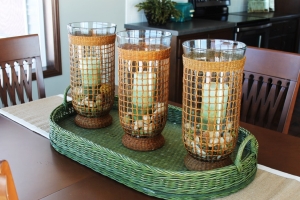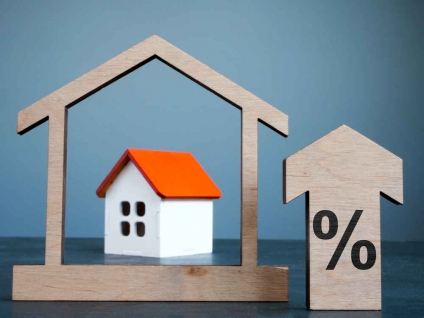Owning a home is a huge milestone for many Americans. Previously we found that single women own more homes than single men; our new study found that women are spending significantly more on their homes than men.
LendingTree analyzed data from the U.S. Bureau of Labor Statistics Consumer Expenditure Survey to compare how men and women spend. We looked at several categories, and when it came to spending on housing, it’s clear there’s a gender gap in the housing market. A quick look at what we found:
- On average, women pay 1.29 times more on owned dwellings, which include mortgage interest, property taxes, home insurance, and other expenses.
- Broken down more specifically, women pay 1.20 times more on property taxes, 1.11 times more on housing, and 1.09 times more on mortgage interest and charges compared to men.
- Annually, women spend $16,223 on housing compared to the $15,562 spent by men.
- When it comes to renting, men spend 1.12 times more on rented dwellings, which includes rent, parking fees, maintenance, and other related expenses.
There’s a gender gap in the housing market
Glass ceilings don’t only apply to the workplace — when it comes to housing, the gender gap is striking.
On average, women spend 1.29 times more (based on total expenditures) on owned dwellings, which include mortgage interest, property taxes, home insurance and other expenses. Broken down more specifically, women pay 1.20 times more on property taxes, 1.11 times more on housing and 1.09 times more on mortgage interest and charges compared to men.
On the other hand, men spend 1.12 times more on rented dwellings, which includes rent, parking fees, maintenance and other related expenses.
Spending on housing by gender
| Category | Women’s annual spend | % of women’s expenditures | Men’s annual spend | % of men’s expenditures | Difference in % of expenditures |
|---|---|---|---|---|---|
| Women’s expenditures higher | |||||
| Owned dwellings | $4,686 | 12.07% | $3,842 | 9.32% | 1.29 |
| Property taxes | $1,533 | 3.95% | $1,357 | 3.29% | 1.20 |
| Housing | $16,223 | 41.77% | $15,562 | 37.77% | 1.11 |
| Mortgage interest and charges | $1,359 | 3.50% | $1,326 | 3.22% | 1.09 |
| Men’s expenditures higher | |||||
| Rented dwellings | $5,051 | 13.01% | $6,000 | 14.56% | 1.12 |
Source: LendingTree analysis of U.S. BLS 2021 Consumer Expenditure Survey data.
According to LendingTree senior economist Jacob Channel, there are a few reasons why women face more financial barriers when it comes to owning a home, largely boiling down to individual priorities.
“While the reasons behind their financial choices will vary by person, there’s some evidence to suggest that women prioritize homeownership more than men and are more willing to make sacrifices to become homeowners,” he says. “This can help explain not only why single women tend to spend more on homes that they own than men do, but also why single women are more likely to be homeowners, even if they tend to earn lower incomes. Men, on the other hand, might not be as keen to take on the commitment of buying a home. As a result, they could be more willing to spend a bit extra on a nice place to rent.”
You can view the full study here: Spending By Gender Study
LendingTree’s senior economist Jacob Channel had this to add:
“There’s some evidence to suggest that women prioritize homeownership more than men and are more willing to make sacrifices to become homeowners. This can help explain not only why single women tend to spend more on homes that they own than men do but also why single women are more likely to be homeowners, even if they tend to earn lower incomes.”
Every year and in every way, I try to help create more Anticipatory Leaders and individuals working at Anticipatory Organizations as opposed to reactionary ones who quickly miss opportunities that are in plain sight.
The major cornerstone to an Anticipatory mindset is my Hard Trend Methodology, where we discern between Hard Trend future certainties that are based on future facts that will happen and Soft Trends that are open to influence. This effort lets you see disruption before it disrupts and solve problems before they occur, turning disruption into a choice.
Highlighting the three categories of my Hard Trend Methodology — technology, government regulations, and demographics — one of them is a constant that all organizations in every industry should be paying as much mind to as possible: demographics.
In a recent episode of my “Opportunity Hour: Conversations with the Masters,” I invited Dr. Ken Dychtwald to speak on the subject of the Baby Boomer age wave. Dr. Dychtwald is North America’s foremost visionary and original thinker regarding the lifestyle, marketing, healthcare, economic, and workforce implications of the Baby Boomer Generation.
Ken is a psychologist, a gerontologist, the CEO of Age Wave, and bestselling author of 19 books on age-related issues, including his most recent memoir Radical Curiosity: One Man’s Search for Cosmic Magic and a Purposeful Life. Additionally, he is the creative producer and host of the PBS documentary The Boomer Century and his new PBS special Life’s Third Age.
Understanding the Global Age Wave as a Hard Trend
According to Dr. Dychtwald’s research at Age Wave, at the beginning of the 20th century, the average life expectancy was merely 47 years old. The century before, the average life expectancy was even less, ringing in at around 35.
Now, thanks to the many breakthroughs in the last century or so, including improvements in antibiotics, public health efforts, refrigeration of pharmaceuticals, and exponential self-care, life expectancy has skyrocketed! For many, living to 80, 90, or maybe even more years is a very real possibility. The evidence is clear, as nearly one billion people in the world are currently over the age of 60 and that number is expected to double in the next 20 years.
This has never happened before, and the result is that many societal developments, products, services, and other offerings are not catering to the needs of aging individuals. From automobiles designed to match the form and fit of 20-year-old individuals to our medical system targeting only helping younger individuals too, we have not matched our healthspan to our lifespan.
But aging itself is a Hard Trend. Chronologically, all generations will get older. Right now, the Silent Generation and Baby Boomer Generation are the ones validating this future certainty. Dr. Dychtwald is starting to notice that the whole look and feel of life is moving around and people are now beginning to contemplate living much longer. So how are business, marketing, products, services, and offerings evolving with them?
Changing the Soft Trend
Dozens of questions surround the Soft Trend side of the global age wave, and answers to those help businesses and organizations identify the boundless opportunity that this wave has for everyone.
Dr. Dychtwald identifies a few Soft Trend questions that Anticipatory entrepreneurs should be asking. In what way are people aging? How do people want to grow older? And what might we need to learn? Dr. Dychtwald encourages people to continually reinspire and reinvent themselves, as do I!
Whether this means individuals are learning new hobbies, starting business later in life, or continuing to serve their community on a volunteer basis, in doing so, we as a society match lifespan with healthspan, and the needs of all generations evolve.
So in light of this, what are some problems we can see that we could pre-solve, as well as what are the opportunities that we can see right now for the Silent Generation and Baby Boomers, or even Gen X and Millennials, as they approach their 40s, 50s, 60s, and beyond?
Constant Business Opportunity in Longevity
Knowing that longevity is truly a Hard Trend thanks to medical and technological developments, transforming business operations and offerings to suit the needs of a population that will continuously age while maintaining their faculties and physical abilities more and more is necessary.
For example, if you are a retailer and your primary customer is older versus younger, perhaps your store layout should include more places to sit, nicer bathrooms, and accommodations that suit the needs of the age wave. But let’s also flip the script here for those with a younger customer base and think in a deeply Anticipatory way. If we know aging is a Hard Trend future certainty, how will you evolve with the younger generation you cater to as they age?
Now, at the moment, the Baby Boomer Generation is our focus, and outside of their needs, one important characteristic to note is that they are not as frugal as their predecessors and many of them hold quite a bit of wealth as opposed to younger generations.
Coupled with that, the stigma that older generations are set in their ways is fading fast. Based on Dr. Dychtwald’s research with Age Wave, people are trying new things. People are falling in love at 50, they’re going to the gym for the first time at 60, and even dreaming up new ideas, as evidenced in the highest rate of successful entrepreneurialism in the world being individuals over the age of 55!
If you are a marketer and you are still stuck believing it is youth that all generations chase, or that people over 50 are somehow not worth your attention, you are losing what could be millions upon millions of dollars in opportunity. People over 50 have more money to spend on health, travel, home renovation, gifts, automobiles, and more.
They are an extremely valuable potential consumer base, and they’re hiding in plain sight for the right Anticipatory entrepreneur to serve with significant products, services, or enrichment opportunities that cater to them.
Is it time for a break? Okay..so the kids are on Spring break, but when do you get to take a break? Why don't we just TAKE one?
It’s that time of the year again. You know, Spring break, upcoming graduations along with the non-stop schedule of buying gifts, prepping food, baking cookies, keeping the house sparkling clean, going to parties, relatives to visit, and on and on and on.
You race from one event to the next, and fall in bed exhausted. There’s never enough time to pack it all in, and by the time you are close to catching up, you just might be a tad irritable, worn-out, and maybe even sick from the latest bug going around.
And somewhere in all of that chaos, you’re supposed to be focused on business and hitting your year-end sales goals. It’s enough to make you sit down and cry.
If you’re finding yourself nodding in agreement to all of that, and thinking to yourself ,“I just want to run away, then you need to spend some time investing in yourself and take a break from the action. You say you can't do it????
Hmm...
Here are some tips on how and WHY you should take care of you.
• It sounds counter-intuitive, but blocking time out for YOU each day will make you more productive in the long run. Make sure you time-block a lunch hour each day (and eat something healthy).
• Plan your day so you can be home for the evening with your family, or if you’re living the single life, so you can spend time with your friends. Limit evening appointments to no more than twice a week. Listen to some music you love, read a book, have a game night with your kids, walk the dog…You need that downtime each evening to relax, de-stress, and recharge your batteries each day.
• Start small, and block an afternoon off to go get a massage, get your nails and hair done, or catch an afternoon movie with the kids…and make sure you change your voicemail and set an autoresponder on your email saying you’re out on appointments for the remainder of the day, but will respond the following day. Avoid the urge to constantly check your messages! I promise, they will be there in the morning.
• Plan a weekend off to go to a nearby trendy hotel or glamping with your partner, get together for a weekend with your best friends, or have a staycation at home. You’ll be energized from being with people who feed your soul, and can tackle your work with renewed enthusiasm after taking this short break.
• Learn to say “No!” This is a hard one for most women, but really, you don’t need to bake cookies for every party you’re invited to. or accept every invitation you get. You don’t even have to keep your house sparkling clean if you don’t want to. It’s ok! Take some time to pick and choose the activities that will nurture you and create some joy.
• Delegate, delegate, delegate! This is a perfect time to get other people involved in helping you stay on top of all you need to do. Indulge in having a housecleaner even just one time to give yourself a break. Consider catering a meal rather than cooking everything yourself and/or trade off the duty with a friend who can cook:-)
• Remember to stay hydrated, eat healthy (all those party carbs can really sap your energy—so choose to offset them by having a salad or healthy soup the next day), take a short walk or exercise every day, and take your vitamins!
By incorporating some self-care into your daily schedule, planning down-time, and learning to say “No”, you’ll find that you are more relaxed, have more energy, and you’re more productive at work and quite frankly, nicer to be around. The Wrap: Be NICE to yourself...then everyone will follow:-)
Want a few secrets to managing your time? Contact me: This email address is being protected from spambots. You need JavaScript enabled to view it.
Agent Resource
What's New

From buying and selling advice for consumers to money-making tips for Agents, our content, updated daily, has made Realty Times® a must-read, and see, for anyone involved in Real Estate.





![Women Pay 1.29 Times More for Homes They Own Than Men [LendingTree Study]](/media/k2/items/cache/a98cb72b988d3fde0e1889b5b31353a8_XS.jpg)










